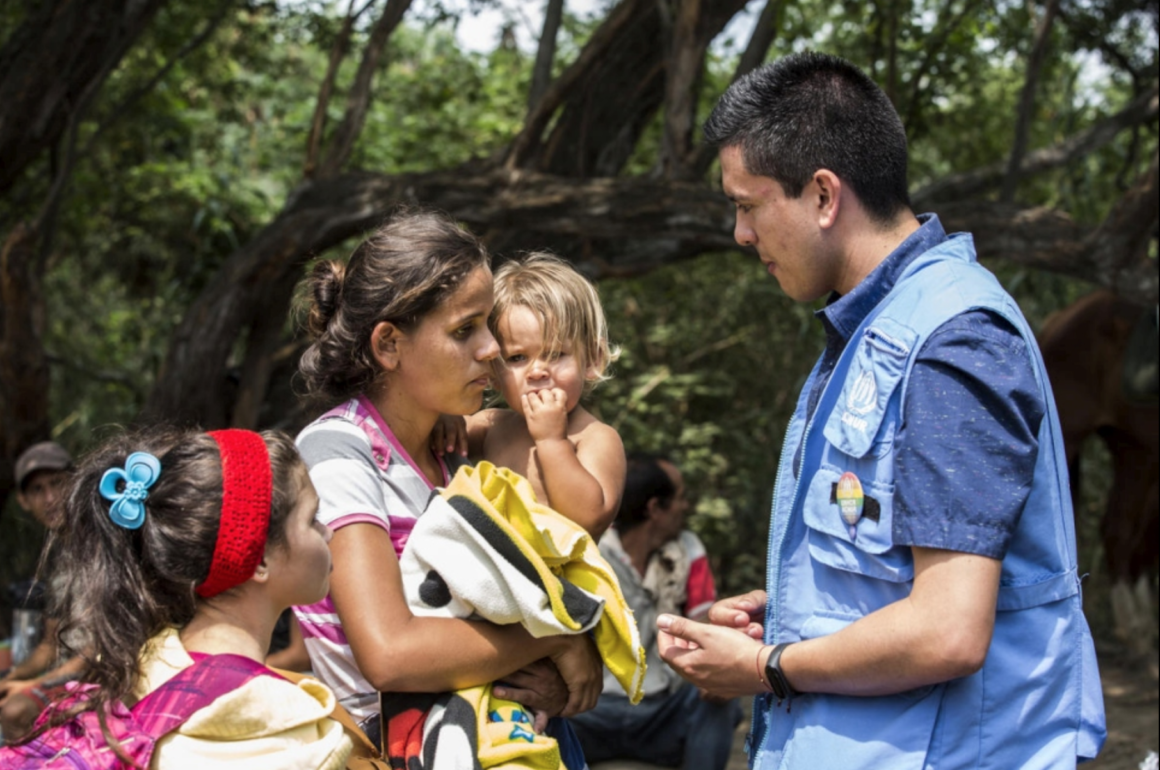
The humanitarian crisis in Venezuela has become increasingly difficult according to the latest report released by the United Nations (UN). Venezuelans continue to be displaced due to violence, insecurity, political instability, lack of food, medicine, and basic services.
Currently, there are more than four million Venezuelans who have had to leave their country according to the report of the United Nations Refugee Agency (UNHCR). The vast majority moved to other countries in the region.
According to data from the International Organization for Migration, the countries that received a great number of Venezuelans are: Brazil, Colombia, Chile, Costa Rica, Ecuador, Mexico, Panama, Peru, thus causing a migration crisis. Currently, Colombia hosts 1.3 million of them; followed by Peru with 768,000; Chile with 288,000; Ecuador with 263,000; Argentina with 130,000; and Brazil with 168,000.
The influx of Venezuelan migrants is considered the largest exodus in the history of Latin America. From 2016 to date, they have become one of the largest displaced population groups in the world.
“Given this situation, hundreds of thousands of Venezuelans remain without any documentation or permission to stay regularly in nearby countries, and therefore lack formal access to basic rights and services. This makes them particularly vulnerable to labor and sexual exploitation, human trafficking, violence, discrimination, and xenophobia” – said IOM and UNHCR members in a joint statement.
According to the UN, the majority of migrants arriving in neighboring countries are families with children, pregnant women, older adults and people with disabilities. Often forced to take irregular routes, they are victims of traffickers, traffickers and armed groups. More and more families arrive with increasingly scarce resources and have an immediate need for protection, shelter, food, and medicines. The need for humanitarian assistance is urgent. “We left everything in Venezuela. We do not have a place to live or sleep and we have nothing to eat, said Nayebis Carolina Figuera, a 34-year-old Venezuelan who fled to neighboring Brazil.
“We are working to strengthen our presence along the most important borders and facilitate the identification of people who may need protection and specific services, such as unaccompanied children, children who have been separated from their parents, and pregnant women. Moreover, we have also worked to provide support and legal guidance to newly displaced people” affirmed the special representative of UNHCR-IOM for refugees and Venezuelan migrants, Eduardo Stein, in the report.
By Janier Mendoza (Universidad Centroamericana – Nicaragua)
For more information, access: https://www.acnur.org/situacion-en-venezuela.html




